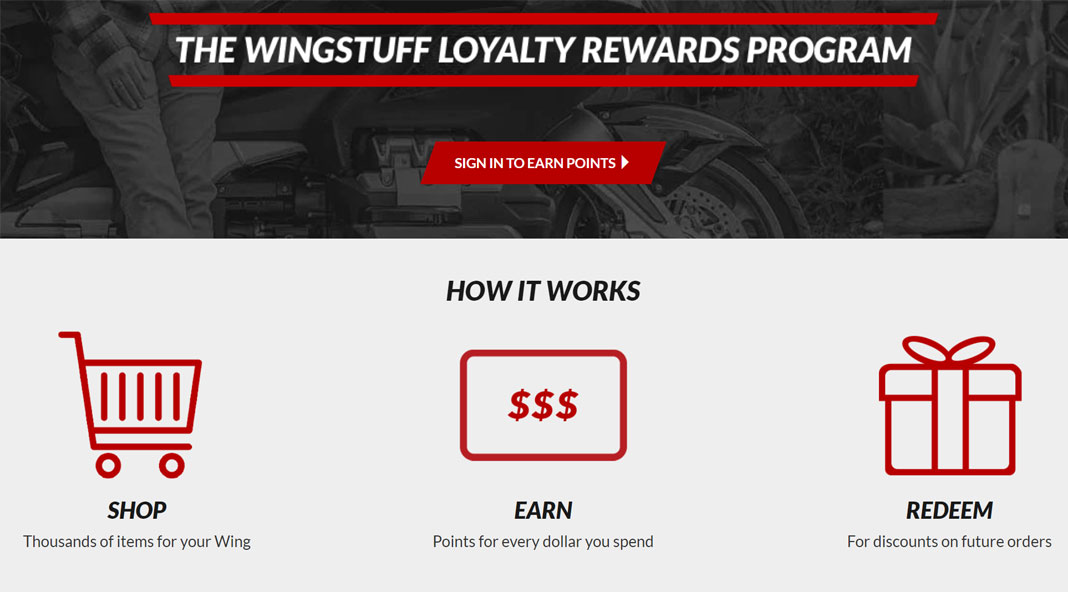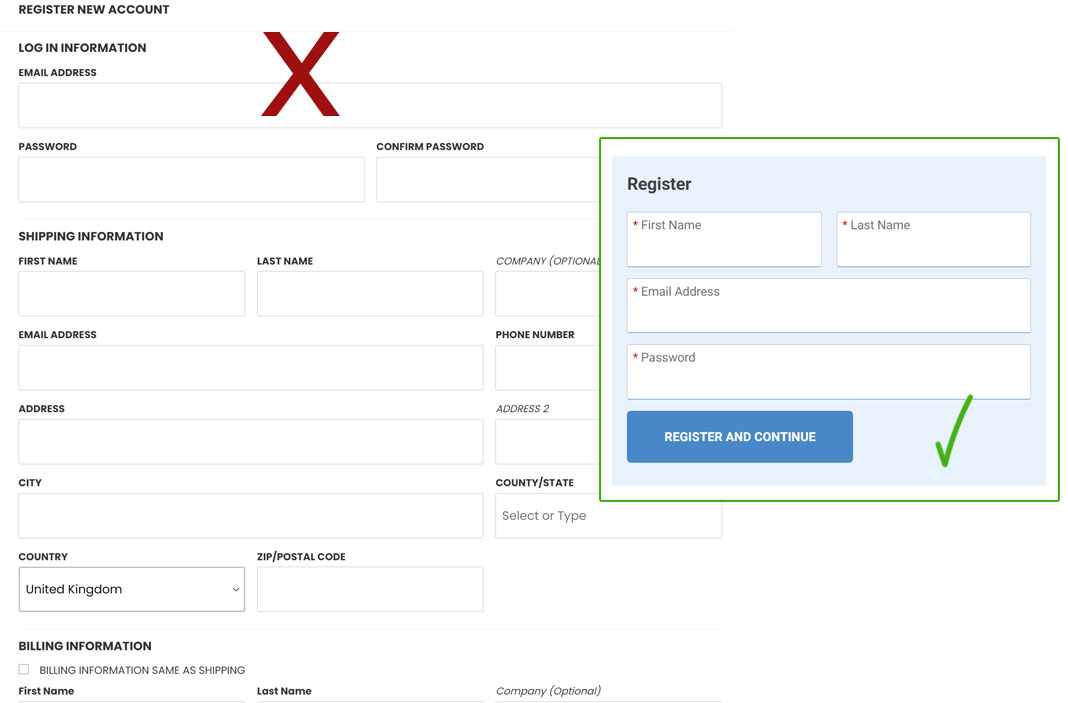
Requiring customers to login to an account before ordering on an e-commerce website can have several perks for both the customers and the business, but isn’t necessarily right for everyone. Here are some pros and cons to help you decide if required login is right for your site.
The Pros of Requiring Login
1. Streamlined Ordering Process:
By having a login, your customer can save their preferences, shipping addresses, and payment information. This allows for a faster and more convenient ordering process in the future, as they won’t need to enter your details repeatedly.
2. Personalized Experience:
Customer logins enable you to offer personalized experiences. You can track your shopper’s purchase history to provide tailored product recommendations based on each user’s habits and histories. This helps to enhance customer satisfaction and increase the likelihood of repeat purchases.
3. Order Tracking & History:
With customer accounts, shoppers can easily access their order history and track their packages. This provides transparency and convenience, as they can monitor the progress of their orders without having to contact customer support. It saves time and effort for both the shopper and your staff. This is especially useful if you offer B2B services, as your retailers can more quickly and easily re-order previously purchased items, and confirm what they’ve purchased against purchase orders in their warehouse.
4. Loyalty Programs & Rewards:
Customer accounts facilitate the implementation of loyalty programs. By tracking customer behavior and purchase patterns, businesses can offer rewards, discounts, or exclusive promotions to incentivize repeat purchases and foster customer loyalty. There are a huge variety of reward programs you can run on your site and all of them will need a customer login to work.

5. Communication & Support:
Requiring customer accounts allows for easier communication between the business and the customers. You can send order updates, delivery notifications, and respond to inquiries more effectively through the account messaging system. This helps to improve customer service and engagement. It also allows for your support staff to make notes on the customer’s account to keep track of any discounts provided and issues that may have come up in the past, so you don’t lose money on less-than-legitimate complaints.
6. Data & Analytics:
Customer accounts provide valuable data for analysis. You can gain insights into customer demographics, purchasing behavior, and preferences, which can inform marketing strategies, product development, and customer segmentation. Requiring a login to purchase allows you to collect important data with every checkout so you can manage reports directly from within your store admin.
7. Increased Security:
Requiring customer accounts can add an extra layer of security to the ordering process. It allows businesses to verify customer identities, prevent fraudulent activities, and safeguard sensitive payment information. Using a digital wallet like Miva Pay will save the user’s payment information in an encrypted and secure fashion.
The Cons of Requiring Login
While requiring customers to create an account before ordering on an e-commerce website has its perks, it can also have drawbacks that businesses should consider. Here are some potential disadvantages:
1. Increased Friction & Abandonment:
Requiring customers to login to an account adds an extra step to the checkout process, which can be perceived as a hassle. Some customers may find it inconvenient or time-consuming, potentially leading to higher cart abandonment rates. Users who are looking for a quick one-time purchase may prefer guest checkout options. Offer a truncated registration form for your users that only asks for email and password. The shopper can then update their account with more information during the checkout process.

2. Loss of Anonymity & Privacy Concerns:
Customers may have concerns about sharing their personal information and creating yet another online account. Some users may be hesitant to provide their email addresses or create passwords, especially if they worry about potential data breaches or spam emails. Ensuring your site is secure and adding the security badges to the site may help mitigate this.
3. User Experience & Usability:
Complex or confusing registration processes can lead to frustration and poor user experience. If the account creation process involves too many mandatory fields or is not intuitive, customers may abandon the purchase altogether or switch to a competitor’s website with a simpler checkout process. Ask for only what is absolutely needed to login. The rest of the info can be saved during checkout.
4. Limited Target Audience:
Requiring customer accounts may deter potential customers who prefer to make one-time purchases or have privacy concerns. This requirement can limit the accessibility and appeal of the website to a broader audience, potentially reducing the overall customer base.
5. Increased Support and Maintenance:
Implementing and maintaining customer accounts requires additional resources and support. Businesses must handle account management, password resets, and address any account-related customer inquiries. This can increase workload and support costs for the business. That said, most sites have to deal with this for logins that aren’t required, so you may not see much of a difference here.
6. Marketing Strain:
Requiring customers to create an account often involves collecting their email addresses for account verification, marketing, and communication purposes. This can result in an increased volume of emails, such as order confirmations, promotional offers, and newsletters. Many third-party marketing applications have volume thresholds, allowing up to a specific number of emails and/or contacts; anything over that number might result in extra fees. If the customers receiving the emails are only getting them because opting in to marketing was default, you may be “wasting” communications on users who aren’t really interested in receiving a newsletter.
7. Incomplete or Inaccurate Customer Information:
Some customers may provide incomplete or false information when creating an account, resulting in difficulties for order fulfillment and customer communication. It can also lead to shipping delays or failed deliveries if the provided address information is incorrect.
To mitigate these drawbacks, try simplifying the registration process and providing clear benefits for creating an account, such as personalized recommendations or exclusive discounts. Finding the right balance between the benefits of customer accounts and customer convenience is essential to ensure a positive user experience and maximize conversions. If you want to try implementing a required login for your checkout, drop us a line!